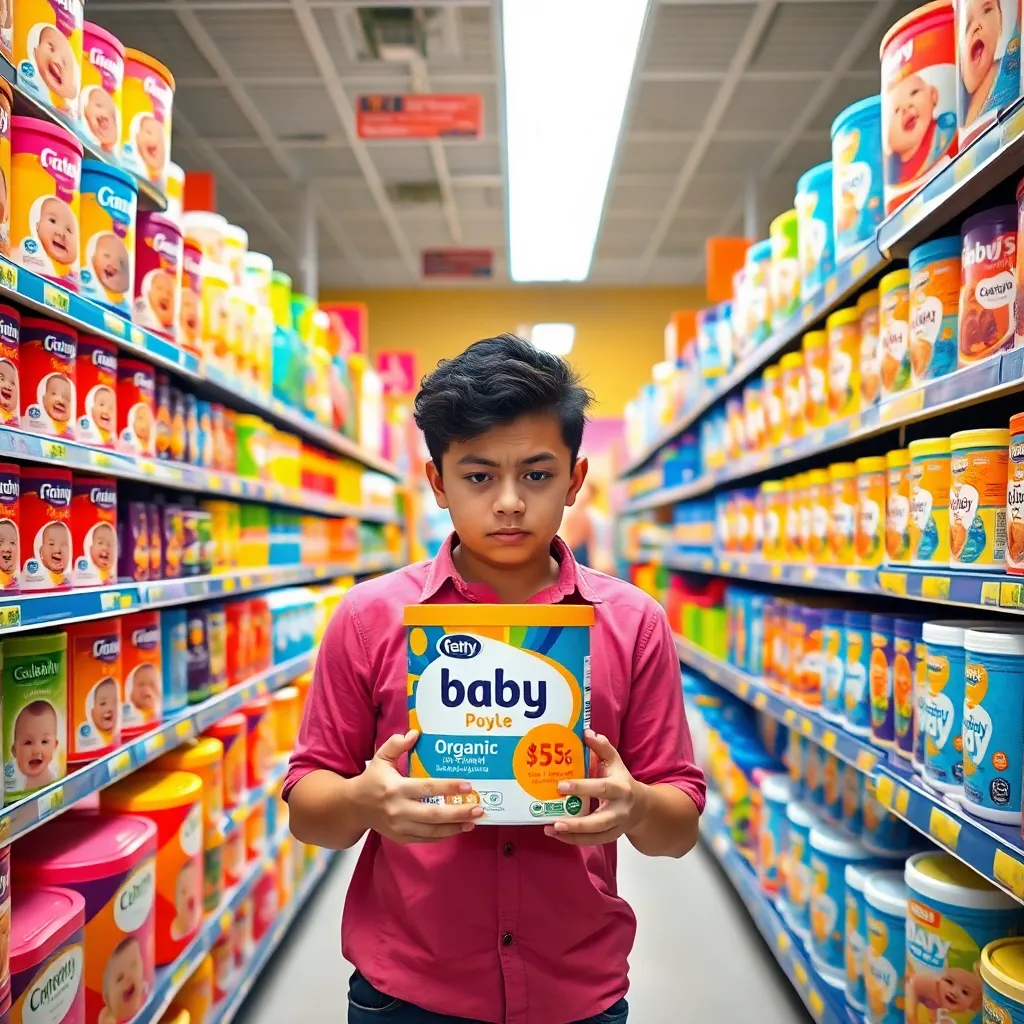The High Cost of Baby Milk: A Parental Dilemma
Melbourne, Australia
In a world where parenting hacks and life tips come from TikTok influencers, it seems parents are taking their cues from the high-end grocery aisle when it comes to baby milk. A recent study has shown that many parents are opting for more expensive baby formulas, convinced that a higher price tag equates to better quality. This phenomenon raises eyebrows—and a few chuckles—among budget-conscious parents and financial advisors alike.
The Formula for Confusion
Parents often find themselves in the grocery store, staring blankly at shelves lined with baby formulas that might as well be labeled with Michelin stars. The watchdog report highlights a growing trend where parents are shelling out top dollar for products that promise to be the best for their infants. One mother, Sarah Thompson, shared her experience:
“I walked into the store for a simple formula and walked out with a $50 tin of organic, gluten-free, non-GMO baby milk that’s also ethically sourced from cows that listen to classical music. I don’t even know what half of that means!”
The marketing behind these formulas is as intricate as the nutritional content itself. Brands tout benefits like enhanced brain development, digestive health, and even a potential future career as an astronaut. But is it really necessary to pay a premium for what is essentially milk powder?
The Price Tag Paradox
Parents are often caught in a paradox: they want what’s best for their children, yet they also want to keep their bank accounts intact. The study revealed that many believe that the higher the cost, the better the quality. This belief is so widespread that one can’t help but wonder if it’s just a clever marketing ploy.
In a world where a cabbage can cost as much as a small car, how do parents navigate this maze of pricing?
The Economics of Baby Formula
To put things into perspective, the cost of baby milk has skyrocketed, with some brands charging upwards of $70 for a tin. Meanwhile, the nutritional content often remains similar across price ranges. A local pediatrician, Dr. Lisa Nguyen, weighed in on the issue:
“It’s important to remember that most formulas are held to strict nutritional standards. Whether you pay $20 or $70, your baby is likely getting the nutrients they need. It’s more about the marketing than the actual quality.”
The Marketing Machine
This brings us to the marketing machine that drives the baby formula industry. Advertisements often play on the fears of new parents, suggesting that anything less than premium is a disservice to their child’s health. A satirical take on this could be a commercial featuring a baby dramatically shaking its head in protest at a generic brand, while angelic voices sing about the virtues of premium formulas.
A Personal Testimony
One father, Mark Jenkins, decided to conduct his own experiment. He bought both the high-end formula and a generic brand, feeding them to his twins without informing his wife.
“Let’s just say, during the taste test, both babies looked equally confused and slightly offended,” he recounted.
As it turned out, the more expensive formula didn’t lead to fewer diaper changes or a sudden burst of genius from either twin. The result? A classic case of parental anxiety manifesting in the shopping cart.
What Do Parents Really Need?
So, what do parents really need when it comes to baby formula? Experts agree that the most important factors are nutritional adequacy and the baby’s unique needs. Many parents may be unaware that breast milk is still considered the gold standard where possible, but for those who opt for formula, it’s essential to choose one that meets the baby’s dietary requirements—without breaking the bank.
The Future of Baby Food
Looking ahead, as the baby food market evolves, we might see a shift towards more transparency regarding ingredients and pricing. Perhaps a new trend will emerge where parents share their formula experiences online, comparing notes on taste, texture, and, of course, price. Imagine a social media challenge where parents rate baby formulas on a scale from “gourmet” to “tastes like cardboard.”
Conclusion
As parents juggle the ins and outs of caring for their little ones, the allure of expensive baby formulas may continue to tempt some. However, the bottom line remains: love and care are what truly nourish a child, not just the price tag on their milk. Maybe next time, parents should focus on the smiles and giggles rather than the dollars and cents.
In an era where everything is marketed as premium, it’s time to remind ourselves that sometimes, simpler is better—even if it means sacrificing a few fancy labels.
“At the end of the day, my baby doesn’t care if their milk is organic,” said Sarah. “They just want to be fed and occasionally bathed.”
And perhaps that’s the most valuable lesson of all.
